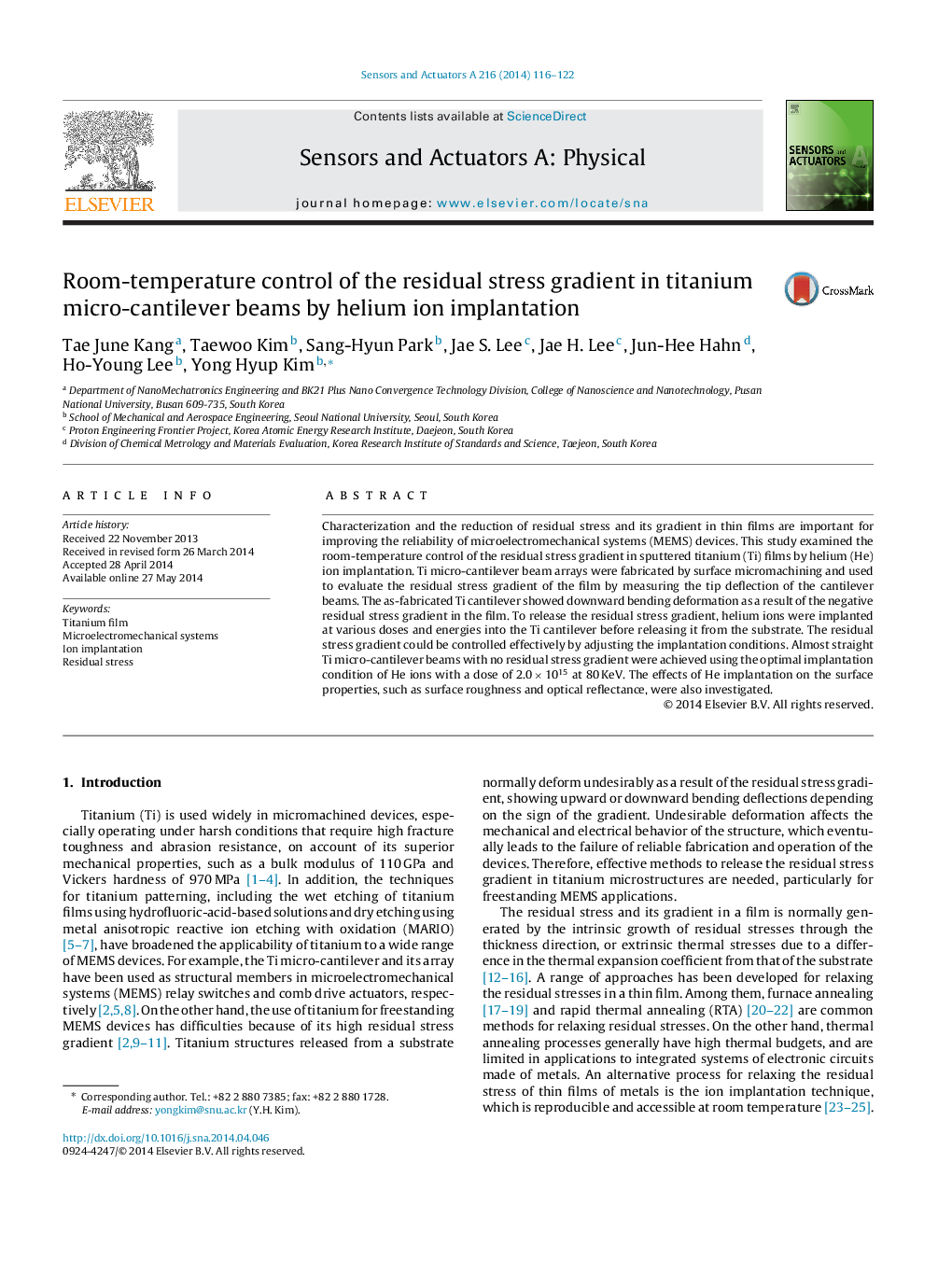| Article ID | Journal | Published Year | Pages | File Type |
|---|---|---|---|---|
| 737048 | Sensors and Actuators A: Physical | 2014 | 7 Pages |
•We investigate the room-temperature control of the residual stress gradient in a Ti film.•He ions were implanted with various doses and energies onto the Ti cantilever.•The residual stress gradient can be effectively controlled by implantation.•Straight Ti micro-cantilever beam array was successfully fabricated.
Characterization and the reduction of residual stress and its gradient in thin films are important for improving the reliability of microelectromechanical systems (MEMS) devices. This study examined the room-temperature control of the residual stress gradient in sputtered titanium (Ti) films by helium (He) ion implantation. Ti micro-cantilever beam arrays were fabricated by surface micromachining and used to evaluate the residual stress gradient of the film by measuring the tip deflection of the cantilever beams. The as-fabricated Ti cantilever showed downward bending deformation as a result of the negative residual stress gradient in the film. To release the residual stress gradient, helium ions were implanted at various doses and energies into the Ti cantilever before releasing it from the substrate. The residual stress gradient could be controlled effectively by adjusting the implantation conditions. Almost straight Ti micro-cantilever beams with no residual stress gradient were achieved using the optimal implantation condition of He ions with a dose of 2.0 × 1015 at 80 KeV. The effects of He implantation on the surface properties, such as surface roughness and optical reflectance, were also investigated.
